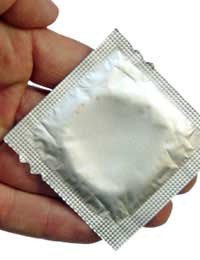What is Chlamydia & How is it Treated?

Chlamydia is an infection spread through having unprotected sex or being passed to the child during a vaginal delivery.It can be passed vaginally, anally or orally from person to person.
It is the most diagnosed sexually transmitted infection in the UK and is caused by a bacteria that is transferred through the exchange of body fluids.
What Does Chlamydia do to The Body?
As it is caused by a bacterial infection it causes inflammation of the reproductive organs and tissues. This can result in pain when passing urine, pain and bleeding during and after sex and a discharge from either the vagina or penis. Occasionally there might be pain in the lower abdomen as well. These symptoms usually present around 6 weeks after infection.The long term effects of Chlamydia include permanent damage to the reproductive organs that can cause infertility. In fact sexually transmitted infections are now one of the leading causes of infertility in the UK.
Other long term effects can include recurring urine infections, pelvic pain and development of pelvic abscesses.If the infection is passed from mother to baby it can cause eyesight conditions that must be treated immediately in order to prevent long term damage.
Signs & Symptoms
Chlamydia can be difficult to diagnose as in most people it has no obvious symptoms to begin with.In women it can very occasionally cause vaginal irritation and possibly some discharge, a bladder infection (cystitis) and a lower abdominal pain, though this is often confused with normal period pain in a lot of women.Long term symptoms can include chronic pelvic pain, pain during or after having sex, intermittent bleeding or recurrent water infections. For men, the symptoms can be similar to women in that urine infections can occur and irritation to the urethra, but also a discharge and irritation of the penis itself.
How Is It Treated?
Chlamydia can be treated very easily with the use of antibiotics though if it has been present for a long time the long term effects on fertility cannot be reversed.For those taking oral contraceptives, additional contraceptive measures should be taken for a minimum of 2 weeks whilst taking antibiotics.Preventing Chlamydia
The easiest way to prevent Chlamydia is to protect yourself by ensuring a condom is worn during sex. The condom can be of the male or female variety and can be bought from the chemist, supermarket (though sometimes not the Femidom) sexual health nurse or family planning clinic.Though it is unusual, it should be remembered that Chlamydia is also spread through oral sex so try and avoid having multiple partners.If you have been tested positive to Chlamydia, you should tell any other sexual partners as they will need to be tested and treated as necessary to prevent the spread of the infection any further.
Chlamydia is a bacterial infection spread through having unprotected sex. It can cause infertility problems if left untreated and can be easily cured using antibiotics.
- New Treatments for Vaginismus
- The Consequences Of Pelvic Inflammatory Disease
- Diagnosing Pelvic Inflammatory Disease
- Contracting & Living With HIV
- What is Hepatitis & How is it Treated?
- Vaginismus - The Facts
- What are the Treatment Options For Genital Warts?
- Treating Genital Herpes
- What is Gonorrhoea & How is it Treated?


Re: Tummy Tucks Explained
I have been living with my stretch mark scars from pregnancy for 7-8 years, I had my first adorable son when I was 16. I believe that’s why…
Re: What is Squamous Metaplasia?
Sir/ Madam Rcently i went for Anti Mullenrian Hormone Test and the report says metaplastic squamous cells seen . what is this…
Re: Benefits Of Evening Primrose Oil
Please I have been trying to conceive for a while, but to no avail I was told to work on my hormonal imbalance, that is why I…
Re: All About Varicose Veins
What a great article! I can tell you really care about what you are writing about, which is a rare thing these days. Thank you for…
Re: What is Squamous Metaplasia?
Happy - Your Question:My smear show squamous metaplasia and reactive cellular change with inflammation.what it means??
Re: What is Squamous Metaplasia?
My smear show squamous metaplasia and reactive cellular change with inflammation....what it means??
Re: What is Squamous Metaplasia?
Genie - Your Question:I undergone D&c last Jan. 6 and my histopath result was Chronic Cervicitis with squamous metaplasia. I had…
Re: What is Squamous Metaplasia?
I undergone D&c last Jan. 6 and my histopath result was Chronic Cervicitis with squamous metaplasia. I had on and off very light…
Re: What is Squamous Metaplasia?
My biopsy report says squamous metaplasia...what is the meaning?
Re: What is Squamous Metaplasia?
I just recently had my biopsy result from a liquid-based pap smear test & the result is: acute & chronic cervicitis with squamous…